

There are many so-called real estate "experts" out there but few have the track record of best selling author Ronan McMahon.
On this page ▼The Dominican Republic is a well-established Caribbean resort vacation destination and benefits from year-round sunny beach weather.
It’s accessible, with seven international airports and regular flights from the U.S. Miami is just a two-hour hop and New York four hours. Best of all, there’s competition on the air routes, including from budget airlines, so flights are regular and cheap.
The Dominican Republic has been called the last affordable place in the Caribbean, and for good reason. Prices here are a fraction of what you’d pay in other, more established islands.
It’s no surprise that people are interested in buying a house in the Dominican Republic, either as a holiday home, investment property, or with an eye on living in the Dominican Republic permanently.

Learn more about the Best Places in the World to Buy Real Estate in our daily postcard e-letter. Simply enter your email address below and we'll send you a FREE report - The World's Best Places to Buy Real Estate.
Learn more about the Best Places in the World to Buy Real Estate in our daily postcard e-letter. Simply enter your email address below and we'll send you a FREE report - The World's Best Places to Buy Real Estate.

By submitting your email address, you will receive a free subscription to Your Overseas Dream Home and special offers from International Living and our affiliates. You can unsubscribe at any time, and we encourage you to read more about our Privacy Policy.
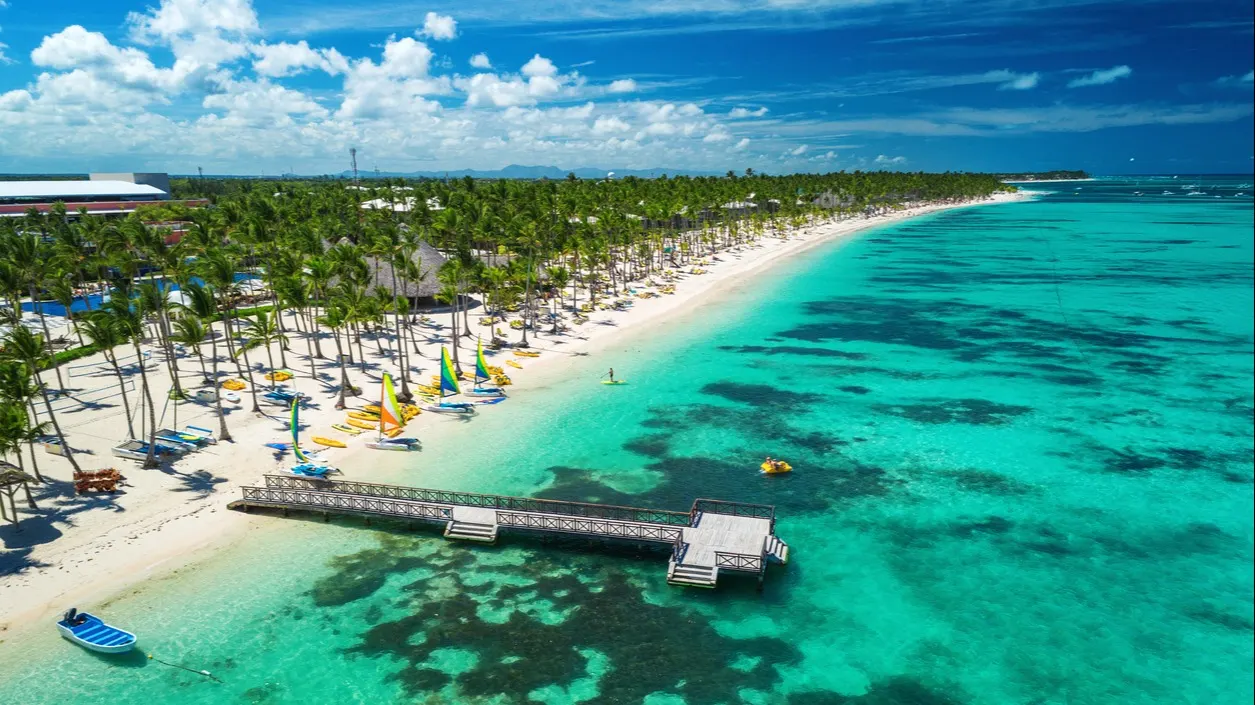
Unlike other parts of the Caribbean, there are no restrictions on foreigners buying real estate in the Dominican Republic. Foreigners in the Dominican Republic enjoy the same rights as Dominican nationals when it comes to buying real estate.
As a foreigner, you can buy anything from beachfront villas to apartments, to plots of land.
A real estate purchase in the Dominican Republic can quickly and easily lead to residency.
The Dominican Republic provides various residency options for individuals looking to live in the country long-term. One of the most popular and efficient methods is investment in real estate. While the process may appear complex, it can be straightforward with proper guidance.
To be eligible for residency through real estate investment, applicants must meet certain criteria, including being at least 18 years old, possessing a valid passport, having no criminal record, and demonstrating good health.
Additionally, applicants must prove they have sufficient financial resources to support themselves and their families while living in the Dominican Republic.
The investment amount required for residency via real estate investment starts from $200,000.
This residence through an investment route can also eventually lead to citizenship/second passport.
The first residency you receive is valid for one year. On renewal, the next residency is valid for four years, as is each subsequent residency.
Another interesting perk is that after two years of residency, you can be eligible for citizenship in the Dominican Republic.
Citizenship in the Dominican Republic grants you visa-free access to 62 countries.
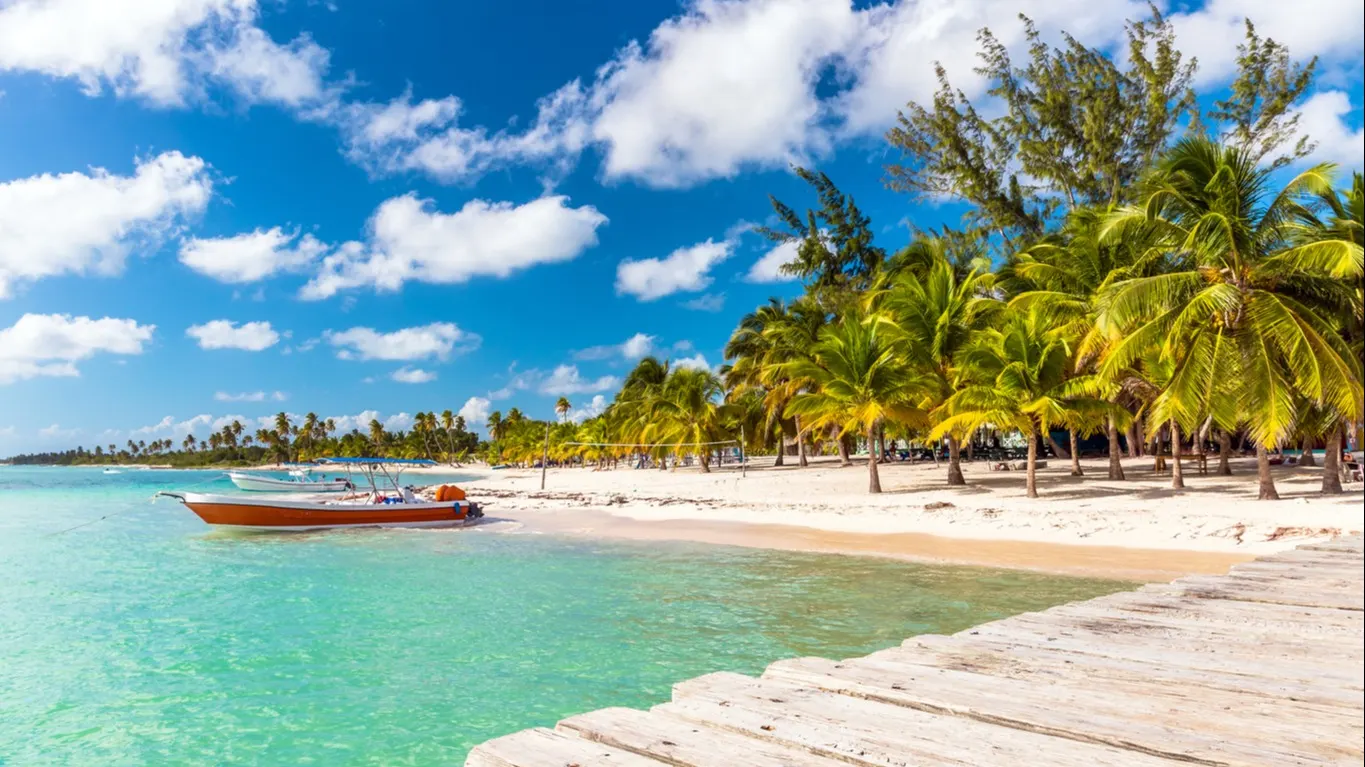
Transfer tax is a single payment to be made upon the transfer of the title. Transfer tax is 3% of the value of the property.
The amount is based on either the purchase price stated in the sales contract or 70% of the property's market value as assessed by tax authorities, whichever is greater.
So, if your contract price is lower than the tax authority's assessed market value, they'll charge you transfer taxes against that higher appraised amount.
Property Tax – This tax is an annual payment of 1% of the property value over and above RD$9,860,649.00, which is currently USD 128,477.
Property owners who have purchased a Confotur-certified property have an up to 15-year tax exemption, including transfer tax, annual property tax, and income tax on the annual 20% tax on rental income. Confotur, also known as Tourism Incentive Law No. 158-01, is a specific program set up by the Dominican government to promote investment in tourism development. Some (but not all) newer real estate projects in tourist areas, such as Punta Cana and Las Terrenas, have Confotur approval.
When you sell a property in the Dominican Republic, you must pay a 25-27% capital gains tax (Impuesto Sobre la Renta) on any profit you make. This is based on the difference between the amount you paid for the property and the amount you sold it for.
If you're making money by renting out your property in the Dominican Republic, you'll have to pay an additional tax. This tax is a flat 27% of your rental income after subtracting allowed expenses like maintenance and utility costs.
In the Dominican Republic, closing costs are typically paid by the buyer, apart from the real estate agent’s fee, which the seller pays.
Close costs typically run up to 5%. They will be lower if the property has the Confotur approval/exemption detailed above.
To be considered the owner of a property in the Dominican Republic, you must hold a Certificate of Title, issued by the Title Registry Office.
Be sure to hire a reputable lawyer before signing any documents or handing over any money for real estate.
It’s typical to conduct negotiations verbally; when you have an agreement, you can make an official offer in writing.
Once the written offer is accepted, the buyer is usually asked for a “good faith” deposit of a few thousand dollars while the buyer does his due diligence. This is normally refundable if the buyer backs out during the due diligence timeframe, which needs to be agreed with the seller before making the deposit.
The next stage is to draw up the Promise of Sale document. A lawyer or public notary can do this.
It’s vital that the buyer has engaged the services of a lawyer by this point. You will want your lawyer to carry out due diligence on the Promise of Sale document and the title deed and permits of the property before you sign anything. However, if you need extra time for due diligence, you can insert a clause into the contract giving you the right to pull out of the deal if you or your lawyer is unhappy with any findings from the due diligence.
The Promise of Sale document is legally binding and signed in front of a notary. It will include:
The full names and Passport information of all parties involved in the transaction, including their spouses, if applicable.
A detailed and accurate legal description of the property being purchased.
A detailed list of the fixtures, fittings, and/or appliances that will be included in the sale.
The agreed-upon purchase price and the specific terms of payment.
The contract should include a default clause that outlines the consequences and remedies in the event of a breach of contract by either party.
The exact date on which the property will be physically (the keys) and legally (the title deed transferred) delivered to the buyer.
The status of due diligence indicates whether it has been completed or is pending.
The seller must provide representations and warranties within the contract, including clauses that protect the buyer against any misrepresentation by the seller.
The contract must explicitly state that the seller is legally obligated to execute the Deed of Sale and transfer the title, free and clear, upon receipt of the final payment and the completion of the transaction.

Learn more about the Best Places in the World to Buy Real Estate in our daily postcard e-letter. Simply enter your email address below and we'll send you a FREE report - The World's Best Places to Buy Real Estate.
Learn more about the Best Places in the World to Buy Real Estate in our daily postcard e-letter. Simply enter your email address below and we'll send you a FREE report - The World's Best Places to Buy Real Estate.

By submitting your email address, you will receive a free subscription to Your Overseas Dream Home and special offers from International Living and our affiliates. You can unsubscribe at any time, and we encourage you to read more about our Privacy Policy.
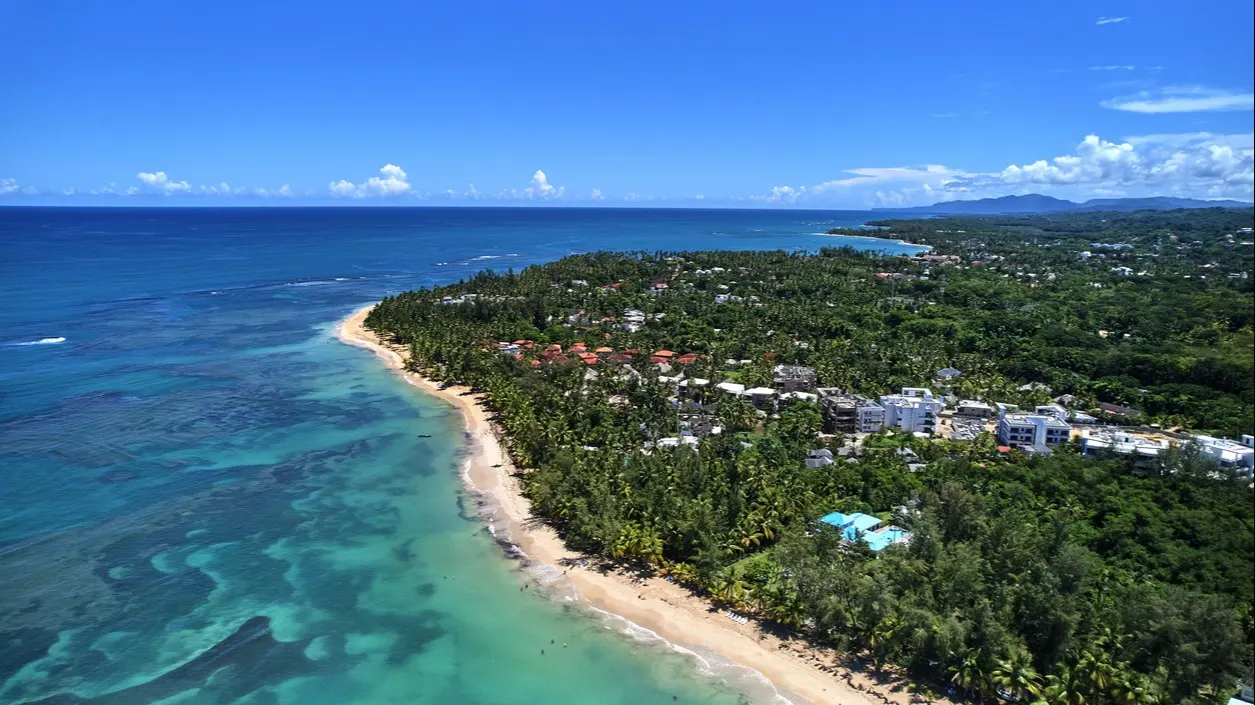
Lush and tropical Las Terrenas is a little slice of paradise…
It boasts 19 miles of walkable, public beach, palm trees, warm breezes, and stars so bright that you could pluck them from the sky.
It’s a laidback, cultured getaway. In town, behind and between the palm trees, are chic cafés and restaurants run by French and Italian expats.
Las Terrenas is low-rise and low-key. Thirty years ago, it was a rustic fishing village. The town didn’t have an electricity supply until the 1990s. But it attracted thousands of Europeans who came as tourists, fell in love with the town, and started businesses: Restaurants, cafés, bakeries, art galleries, small hotels…
The old wooden fishermen’s huts sitting on the beach are now trendy cafés and restaurants. They serve wood-fired pizza and simple snacks, right up to gourmet Italian and French food. You can dine on a covered outdoor deck on the sand, with good food, fine wine, soft music, and the ocean a few steps away.
The beaches here are stunning and varied. Each has its own character, from sheltered reef-protected bays to golden-sand beaches lapped by waves and backed by lush hills.
Unlike other parts of the Dominican Republic, Las Terrenas does not have high-rise buildings, and development is highly restricted.
Outside of town, there are a couple of larger all-inclusive hotels. But that’s it. Everything else is boutique.
It will stay that way. Expats and locals don’t want to adopt the mass-market all-inclusive model.
Construction here is generally of a high standard and very sympathetic to the surroundings.
I can’t think of a nicer place to have a beach home. You’ll find your dollars stretch here, too. My team and I had lunch and drinks for $15 a head, which left me asking if this place had yet to hear about global inflation.
We’ve researched Real Estate Trend Alert (RETA) deals here before, but due diligence is tricky. It’s not an easy place to develop. We have been close a few times before, but in the end, deals just didn’t cut it.
However, a potential Airbnb play could be lucrative for the right buyer.
All indications are that the rental market here is strong—with a sizable post-pandemic boom.
I’ve been tinkering with the idea of buying something overlooked and unloved at the edge of town or close to the beach. Buy at a good price, polish it up, and then maximize your earnings in this strong rental market with a well-serviced rental.
A word of caution, however. Las Terrenas appears to be having issues around beach erosion, which might be a deal breaker for potential RETA deals. Many of the beachfront projects here are extremely low-lying, and flooding has also been an issue in the past. So, if you’re interested in the area, proceed with care.
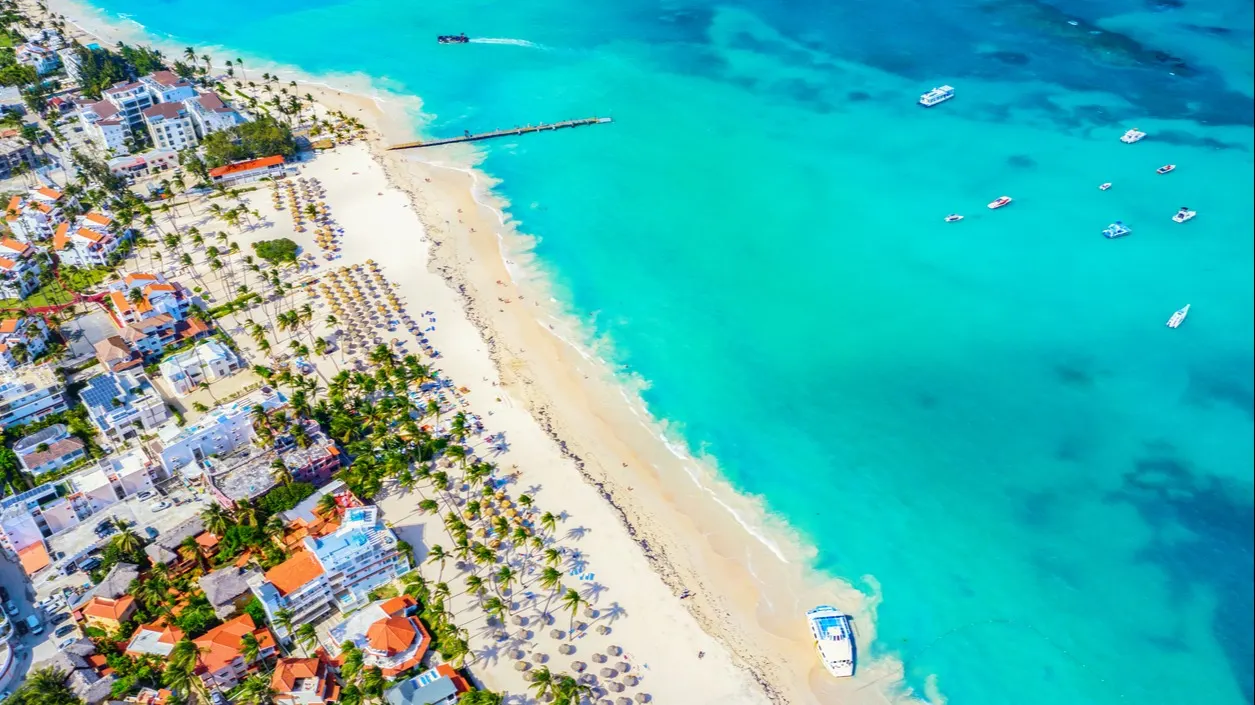
Punta Cana, located on the eastern coast of the Dominican Republic, is a popular tourist destination known for its stunning white sand beaches and crystal-clear turquoise waters.
The region is famous for its numerous all-inclusive resorts, which cater to visitors from around the world and offer a wide range of amenities and activities.
Punta Cana's climate is tropical, with warm temperatures and plenty of sunshine throughout the year. This makes it an ideal destination for beach lovers and outdoor enthusiasts.
In addition to its natural beauty, Punta Cana boasts a vibrant nightlife scene, world-class golf courses, and a variety of water sports and adventure activities, ensuring that there's something for everyone in this Caribbean paradise.
Punta Cana is easily the country’s biggest destination. Like the Riviera Maya, Punta Cana has been benefitting from a decades-long Path of Progress that began here in the late 1960s when it was discovered by a group of American investors who started acquiring and developing beachfront land.
Real estate in Punta Cana is affordable and generally built to a decent standard, but the sheer volume of new construction is keeping both real estate and rental prices low.
That said, with its bars, restaurants, and, of course, the great beaches, Punta Cana makes a lot of sense as a lifestyle destination.
RETA has been looking for deals in Punta Cana and the surrounding area, and we will continue to scout the area for projects that fit the criteria for a RETA deal.
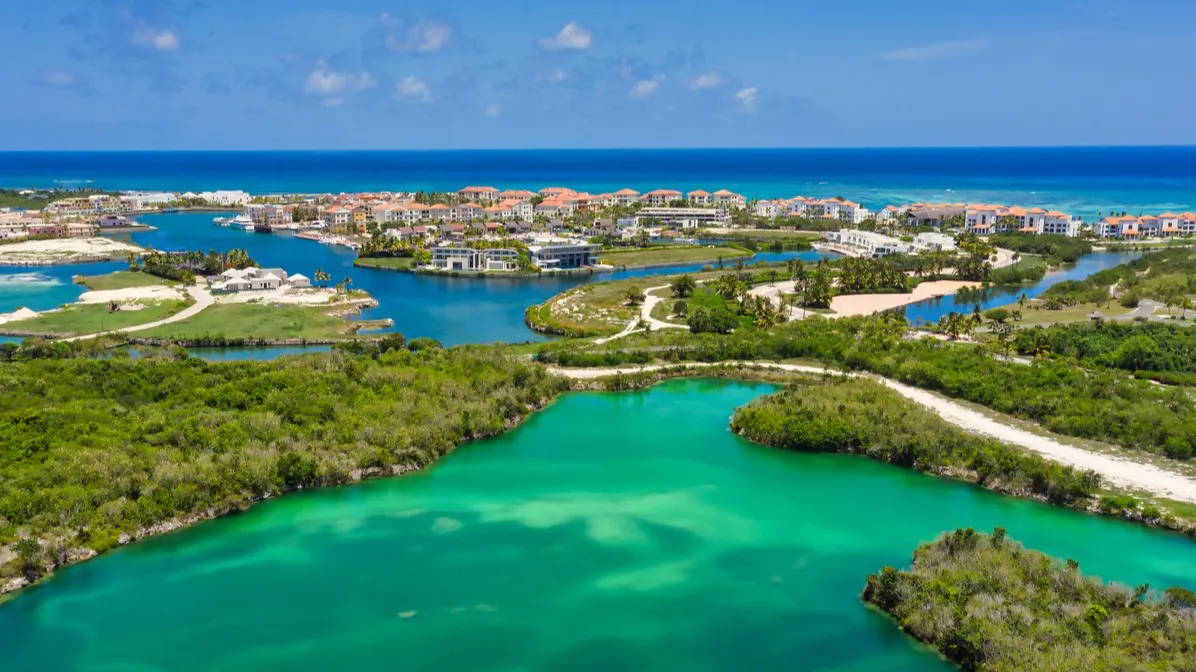
Cap Cana is a luxurious resort and real estate community located on the eastern tip of the Dominican Republic. It is a stunning 30,000-acre property featuring pristine white sand beaches, turquoise waters, and lush tropical landscapes. The community offers a wide range of high-end amenities, including world-class golf courses, marinas, gourmet restaurants, and exclusive beach clubs.
With its commitment to preserving the natural environment and providing exceptional services, Cap Cana attracts visitors and investors seeking a lavish Caribbean lifestyle. The resort's proximity to the Punta Cana International Airport makes it easily accessible for travelers from around the world.
If luxury and spectacular beaches are your thing, then put the next-level community of Cap Cana in the Dominican Republic on your shortlist. Cap Cana is an out-of-this-world luxury beach and golf community.
At 30,000 acres, this place is huge, twice the size of Manhattan. It’s just 20 minutes from the Dominican Republic’s Punta Cana International Airport, with regular flights across Canada and the northeast of the United States.
Everything in Cap Cana screams luxury. It has top-tier golf courses, a pristine marina, sports fishing, shopping complexes, up-market restaurants, a hospital, and a bilingual school.
Then there is the stunning beach. Brilliant and arresting, with azure Caribbean waters against an expanse of white sand.
Cap Cana is a top-tier luxury community, every bit Caribbean paradise.
I think of Cap Cana as a sort of mini “Caribbean Cabo.”
Just like Cabo, you have a top-end marina, incredible golf, and world-class sports fishing.
Except this is the Caribbean.
The market is similar to Cabo in terms of demographics and wealth, though Cap Cana understandably draws folks mainly from the East Coast of the U.S. and Canada.
An interesting quirk of the Cap Cana market is the restriction on the number of bedrooms for any new real estate. People can’t build more rooms, so they build bigger rooms. The result is that you get good value in terms of price per square foot because a one-bed will generally be cheaper than a two-bed, even if they are the same size.
I’m very excited about the opportunity that’s developing here. With scarcity biting across our beat, this could culminate in an incredible RETA deal. Indeed, the developers I spoke to have shown me construction estimates that were shockingly low, considering how much costs have risen elsewhere due to inflation, supply chain issues, and labor shortages.
Cap Cana has major plans for expansion, and it looks like things are already kicking off. This is a project 40 years in the making. But it was hit hard by the financial crisis in 2008/09. Many units remained in a state of foreclosure until about 2020. Since Covid, however, this place has been barreling ahead, with demand surging.
Our opportunity in Cap Cana is to follow the same strategy as we have in Cabo’s 5-star Quivira resort and other ultra-luxury communities on our beat, such as the man-made islands of Ocean Reef in Panama.
We don’t go for the biggest, flashiest mansions that appeal to the jet-set and ultra-wealthy. Instead, the play is to buy stunning real estate that appeals to the “ordinary rich.”
We can maximize profits by tapping into this incredible amenity-rich community using our RETA edge.
We look for value. We buy real estate with the most upside potential. And in uber-luxurious resorts like this, that’s often found back from the beach where the “ordinary rich” will want to stay.

Learn more about the Best Places in the World to Buy Real Estate in our daily postcard e-letter. Simply enter your email address below and we'll send you a FREE report - The World's Best Places to Buy Real Estate.
Learn more about the Best Places in the World to Buy Real Estate in our daily postcard e-letter. Simply enter your email address below and we'll send you a FREE report - The World's Best Places to Buy Real Estate.

By submitting your email address, you will receive a free subscription to Your Overseas Dream Home and special offers from International Living and our affiliates. You can unsubscribe at any time, and we encourage you to read more about our Privacy Policy.